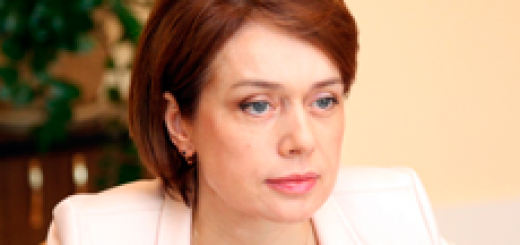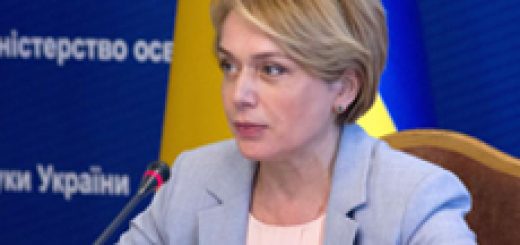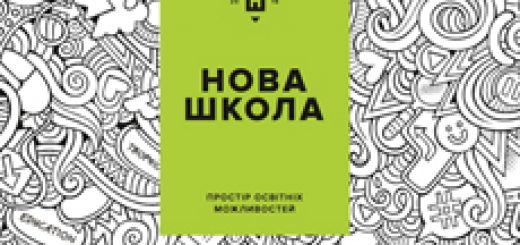 The Ministry of Education in Kyiv postponed the date of transition to the 12-year curriculum until 2018, because the new law on education has not yet been adopted. First of all, it is planned to reform elementary and high schools.
The Ministry of Education in Kyiv postponed the date of transition to the 12-year curriculum until 2018, because the new law on education has not yet been adopted. First of all, it is planned to reform elementary and high schools.
The reform of secondary and preschool education is one of the key tasks of the Ukrainian government in 2016. At least this is what Prime Minister Arseniy Yatsenyuk claims. However, the relevant draft law, which was worked on by a large number of experts and education workers and which has already been submitted to the Verkhovna Rada twice, has not even been registered in the parliament.
Last summer, the Ministry of Education of Ukraine (MES) promised fundamental changes starting in 2017 - the transition to 12-year education and the division into primary, secondary and senior schools. Now they are cautiously talking about 2018. As experts explain, the legislative process has been delayed because its participants are trying to find a compromise that would satisfy both teachers and heads of higher education institutions of the 1-2 level of accreditation, who will be affected by the senior school reform.
Elementary School
Discussions are held at all levels - from elementary school to high school. For example, the idea of teaching in primary school not so much through subjects, but through consideration of topics and games, caused opposition from art teachers - they even registered a petition on the president's website with the demand not to cancel music and drawing lessons. These disciplines are absent in the draft concept of primary school reform.
The reform prepared by the Ministry of Education and Culture does not abolish art, but only integrates it with other subjects, assures Deputy Minister of Education Pavlo Khobzei. "Today's elementary school very often resembles a gymnasium: children sit at desks facing the blackboard, the atmosphere remains authoritarian. We would like it to be integrated training that would stimulate the development of children, the development of interests," the deputy minister explained in a conversation with DW. He is against the assessment of children in the first grades and against subjects. "So that the imagination of the world is formed through play, activity," says Hobzei.
Art teachers will see a threat in such integration. "Children will not use Ukrainian language or mathematics to draw with paints, everything will come down to shading figures in notebooks, instead of immersing themselves in art," warns art teacher Nataliya Prokopiv, "And music will be replaced with physical education for a minute." We will lose culture in the primary ranks. An artist with an easel, a musician playing the piano should come to them."
Unloading
There are also many discussions about the reform of secondary and senior schools. One of the main ones is to relieve schoolchildren. "We overloaded the program so much, we didn't take anything out, we just added it, and as a result, a lot of things are reproductive in nature, set up for memorization. And this is not what an educated person needs today," says Iryna Chernilevska, director of a gymnasium in Kyiv.
The new law should reduce the number of subjects, the disciplines will increase in order not to duplicate information. In addition, more autonomy should be given to the teacher, explain the experts who worked on the law. "Curriculums will be brought closer to European models when there are expected results, there is no hourly schedule of what and when the teacher should teach," says Iryna Kogut, an expert at the CEDOS analytical center.
High school
High school is the link where the most changes are expected. Here, they plan to make a clear and real specialization, and not a hint of it, as was the case in the 2000s, says Kogut. "Back then, each school was supposed to have specialized education, but mostly it was a general specialty, or only two, that is, virtually without a choice. Now it is planned to separate the high school, very often spatially, into separate institutions in some places," explains Iryna Kogut.
It is proposed that after the end of the 9th grade, children take an external independent assessment (EXA) and, depending on their wishes and the results of the EXA, have the opportunity to enter senior specialized schools in two directions - general education or professional. General education is actually preparation for university in a multidisciplinary academic lyceum. Vocational - study in vocational high schools and colleges, where children would receive a worker's professional qualification or the qualification of junior specialists.
More transparent control
They plan to eliminate bureaucracy from schools with a new approach to teacher certification and management of educational institutions. They want to significantly narrow the powers of local education authorities, and give schools more financial and administrative autonomy. At the same time, there is an idea to introduce public control: they plan to introduce competitive election of school directors, to give more powers to pedagogical and parent councils.
Teachers should be given the opportunity to choose where to improve their qualifications, thus destroying the monopoly of post-graduate pedagogical education institutes, says Iryna Kogut. But the idea of teacher certification did not find full support. "The idea was, on the one hand, to find a more or less painless way for the budget to raise teachers' salaries, on the other hand, to control the knowledge of the teachers themselves in order to weed out frankly unqualified personnel. That is, it was proposed to introduce an objective component of assessment into what was previously called attestation. Previously, this happened due to visits by the principal and colleagues to the lessons - that is, clearly a conflict of interests," explains Iryna Kogut.
So far, they have reached a compromise - the traditional certification will be left, and the certification will be voluntary and will give an opportunity to get a salary increase.
When to expect changes
If the parliament passes the law on education in the spring, the Ministry of Education and Culture promises that the reform of elementary and high school will begin in 2018. The secondary school reform is promised to be launched by 2020.





